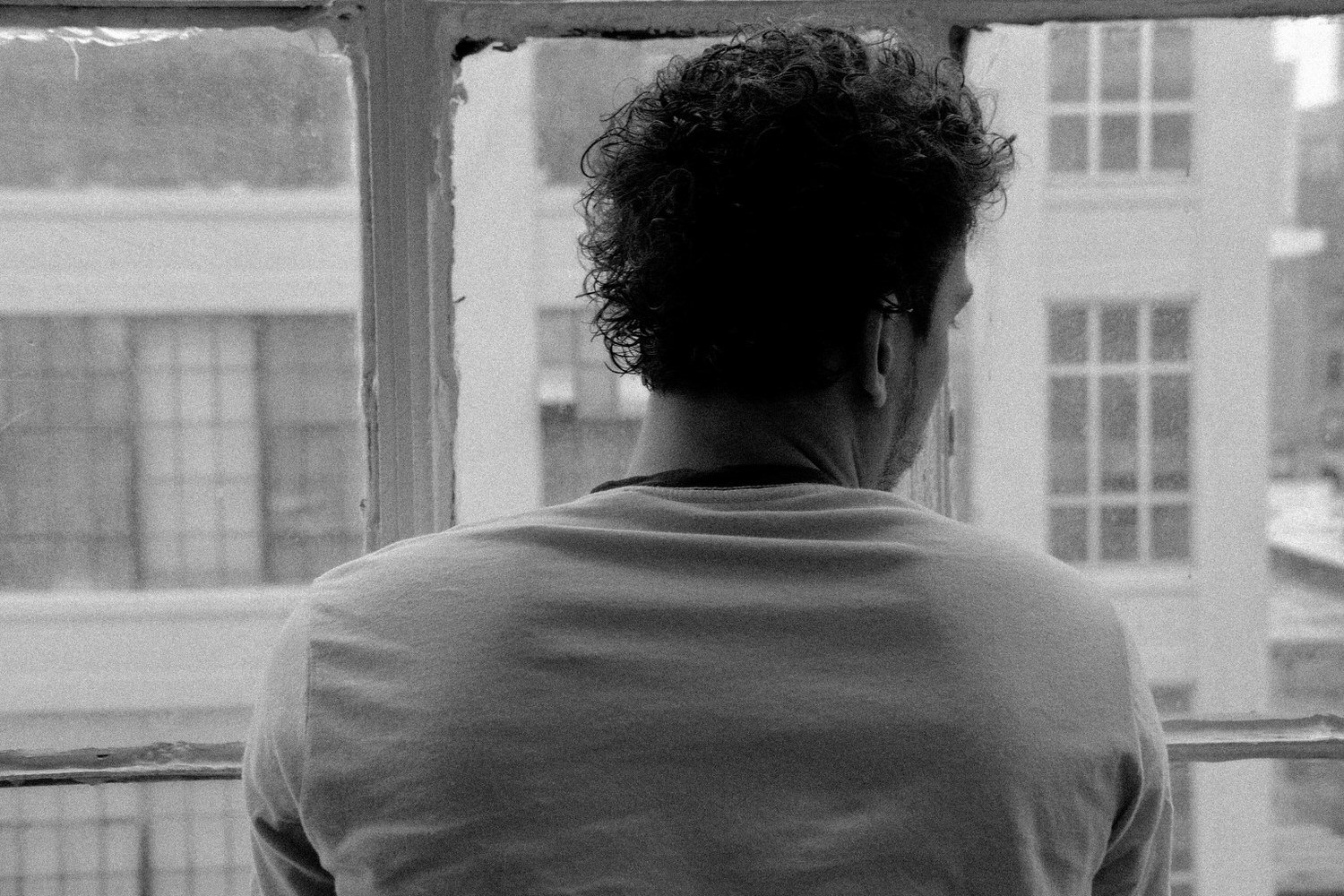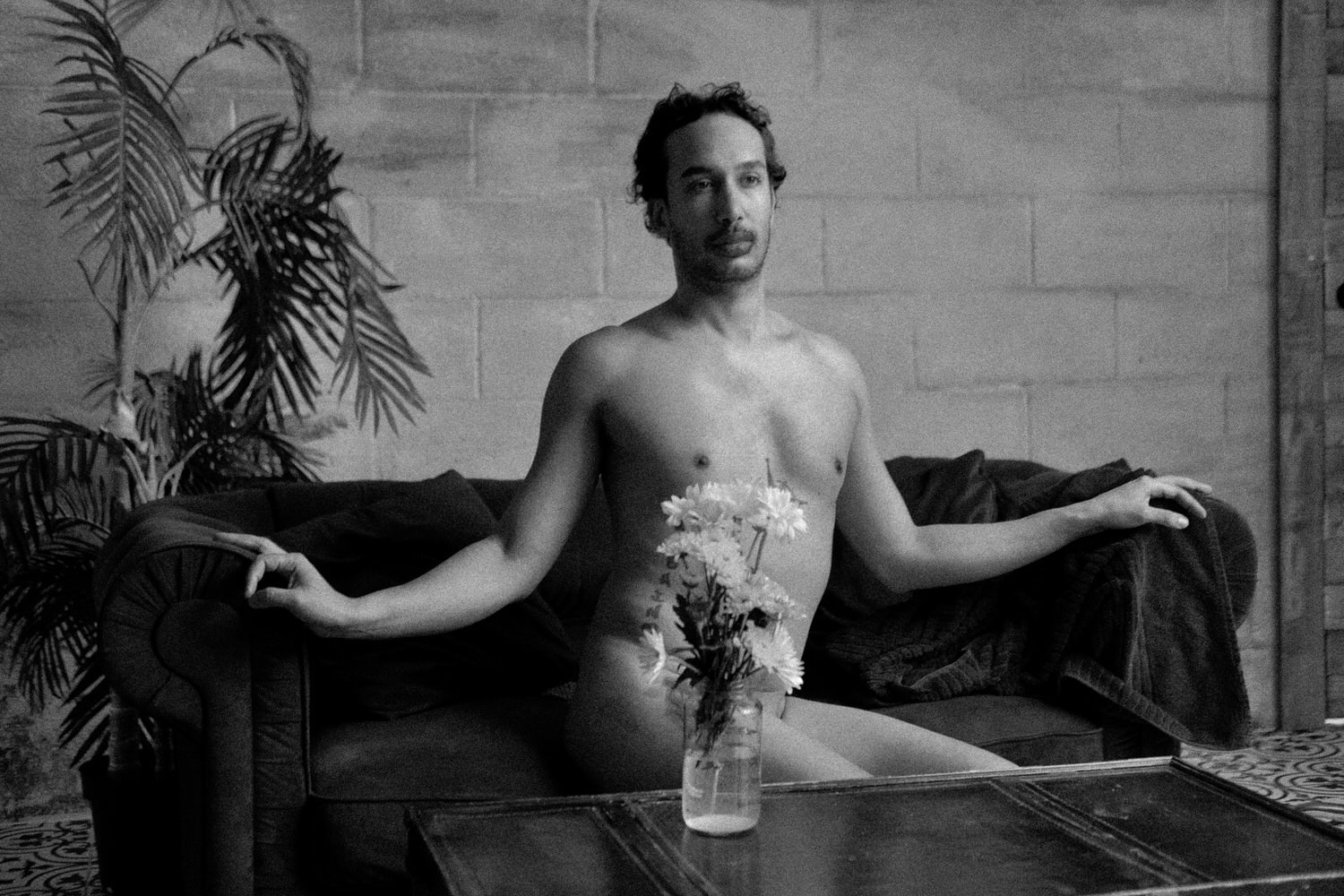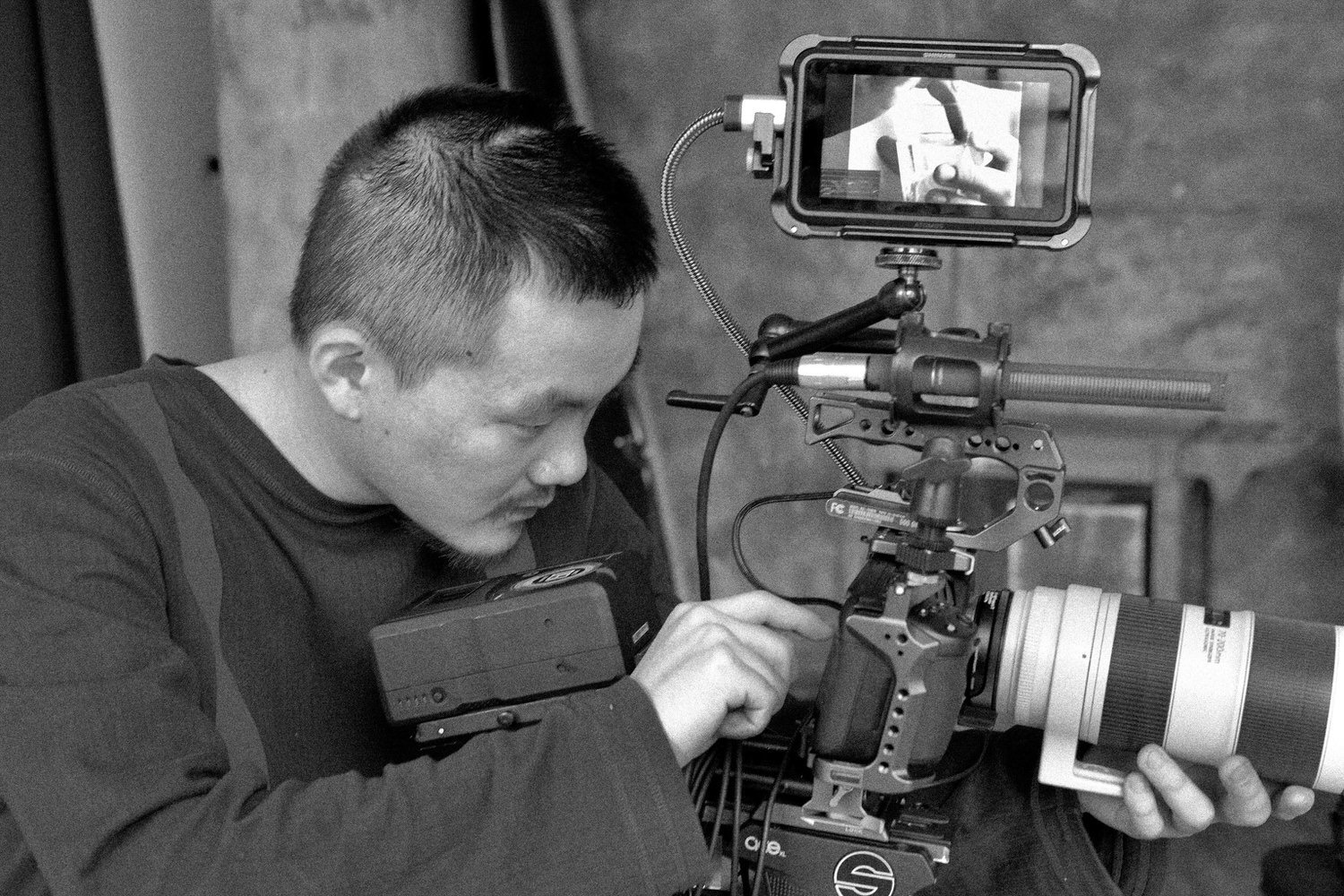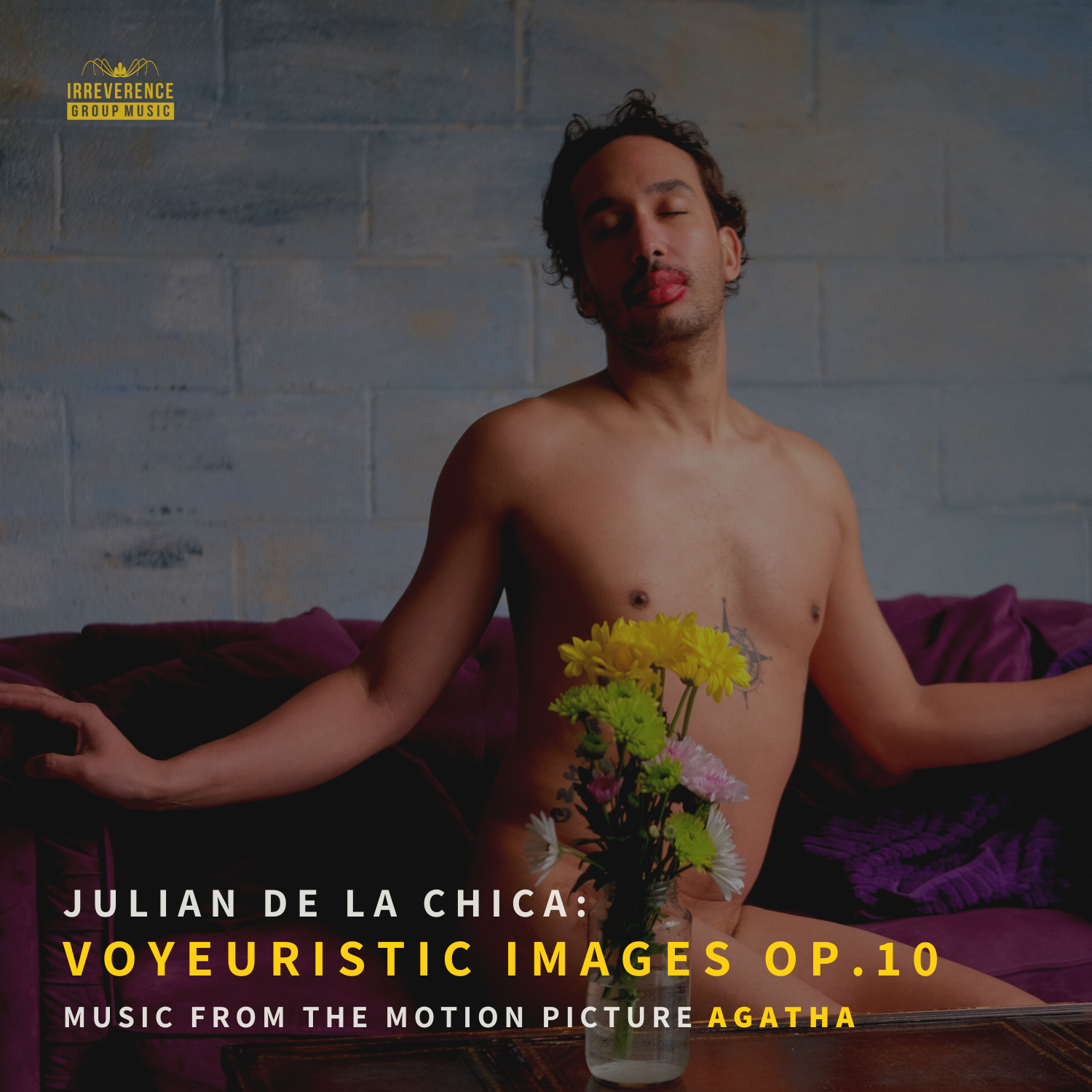← Return to PROJECTS
Julián De La Chica:
Agatha
Release: Oct 20, 2020
Because of its unapologetic and often brutally honest subject matter not typically addressed in the Latin American mainstream, Agatha receiving national consideration is a testament to the universality of the simple and highly topical narrative: what lies beneath the surface of the human psyche when confronted with profound loneliness, isolation, and anxiety.
Inspired by a voyeuristic encounter during the early months of Julián De La Chica’s life in New York City, Agatha was born from the quiet intensity of watching a stranger through a window—an intimate, wordless connection that blurred the boundary between reality and imagination. That moment became the seed of Voyeuristic Images, Op. 10, a solo piano cycle whose stark harmonies and delicate tension underscore the emotional landscape of the film. Written, directed, and scored by De La Chica, Agatha is a minimalist psychological portrait shaped by stillness, silence, and the unspoken spaces of longing.
The film premiered at the 37th Bogotá Film Festival, where it received a Special Mention and won Best International Film. Since then, it has been selected by over thirty international festivals and awarded eighteen prizes, including Best Picture, Best LGBTQ Film, Best Cinematography, Best Composer, and Best Actor. Agatha was also named finalist or semifinalist at eight additional festivals, affirming its impact as a bold, poetic, and deeply resonant cinematic statement.
Agatha on IMDb
Official TRAILER
Watch Agatha on AMAZON PRIME
“... Agatha speaks about the decadence of “dead times”. In a very poetic and intimate language, the film explores a regular morning in the life of Próspero, a young Latino photographer who has moved to the big city in search of opportunities, as well as an identity. De La Chica takes us into Próspero's mind in a very slow and raw way. There is nothing hidden, although there is much that is not said...”
— CHICAGO Movie Magazine
Synopsis
It is Monday morning and Próspero has just arrived at his apartment. He has been partying all weekend and he is exhausted. In the building across the street, standing by his living room window, a strange man is looking at him. It is Carlos. A Colombian musician who has just moved to NY. Both men have been eying each other several times, but they don't know each other. Nor do they know their respective stories. Stories of immigrants, of loss, of break ups, of search. Carlos is fascinated by Próspero's life. When he comes home from Bushwick high from the drugs after the parties, he composes songs and imagines Próspero's life. But that morning everything is different. Próspero thinks that the most ordinary morning in someone's life can become the resolution to a life. Carlos observes, intrigued, from the couch, the story he has created through a window and he observes Agatha, a mysterious woman who appears sometimes in Próspero's apartment and who is in love with Carlos. Próspero is determined to be done with his questions. In a city full of people, loneliness is the only companion.
Rehearsal
Photo by Julián De La Chica
Film NOTES
In my process as a composer—and more broadly, as an experimenter—“everyday life” has always been a central element in how I create. Perhaps it’s because I belong to a generation that has pushed the boundaries of visual language—cinema, television, graphic media—to such high levels of refinement, that image, as a concept and as a form, has become indispensable in my storytelling. I write what I see; therefore, I write what I live. Agatha was born from that very process.
Shortly after arriving in New York, I spent about eight months visiting friends who lived in SoHo. I was new to the city and eager to experience it—its streets, its people, its pulse. We went out a lot, and often I stayed the night on someone’s sofa rather than take the long train ride back to Harlem, where I lived at the time. I didn’t have money for a taxi, and this way, I could extend the night, the adventure.
It was during one of those stays—through a window—that I witnessed the story that became Agatha.
From the living room of my friend's apartment, I began to notice a man in the building across the street. I don’t know who he was, or what he did, but his presence was magnetic—enigmatic. I'm almost certain he knew I was watching him. There was something unspoken in the exchange between our two windows. Something intimate, perhaps even transgressive. Or maybe it was all in my head. A projection. Who could say for sure what was happening?
But Agatha isn’t about certainties. It’s about atmospheres, about longing, mystery, and the blurry line between observation and imagination. It’s about the quiet poetry of the unnoticed, and the stories that unfold when no one thinks they’re being seen.
— Julián De La Chica
Augusto Guzmán
Photo by Julián De La Chica
Augusto Guzmán
Photo by Julián De La Chica
The CREW
Written, directed by Julián De La Chica
Director of Photography Junting Zhou
Produced by Irreverence Group Music
Augusto Guzmán as Próspero
Altagracia Mecía Pérez as Francisca
Julián De La Chica as Carlos
The Music
The award-winning soundtrack to the acclaimed motion picture Agatha is an essential extension of the film’s emotional core. Composed by Julián De La Chica—who also directed the film—the score features solo piano textures marked by exposed, dissonant harmonies and fragile, fleeting melodic lines.
Far from functioning as mere background, the music serves as a vital narrative voice—an intimate reflection of the film’s central themes: isolation, longing, and the psychological weight of watching and being watched.
With its stark simplicity and unapologetic restraint, the music does not aim to explain, but rather to amplify the quiet tension and emotional ambiguity that defines Agatha. It is not a soundtrack that guides; it lingers, haunts, and ultimately becomes part of the film’s very fabric.
Listening to Voyeuristic Images, Op. 10, No. 1
Award-winning soundtrack alongside acclaimed motion picture, Agatha, both by composer/filmmaker Julián De La Chica. Featuring solo piano with exposed, dissonant harmonies and fragile melodic lines, it is a vital component to the film's exploration of the psyche of loneliness, and its unapologetic narrative simplicity.
Festivals & AWARDS
Official Selection
Asterisco Festival Internacional de Cine LGBTIQ+
Barcelona Indie Filmmakers Festival
Chicago Indie Film Awards
Ciudad de Mexico International Film Festival
Madrid Indie Film Festival
Phoenix Short Film Festival
Rome Independent PRISMA Film Awards
The Berlin Flash Film Festival
Finalist / Semi Finalist
Assurdo Film Festival – Nominee Best Soundtrack
Blow-Up Arthouse Film Festival – Semi Finalist Best Experimental
Dumbo Film Festival – Semi Finalist Best Experimental
Montreal Independent Film Festival – Semi Finalist Best Experimental
Oslo Film Festival – Semi Finalist Best Foreign Film
Sicily Independent Film Awards – Finalist Best Experimental
Seoul International Short Film Festival – Finalist Best LGBT Film
Sweden Film Awards – Finalist Best Film LGBT
Nominees
Brazil International Independent Film Festival – Best Medium Film
Lonely Wolf London International Film Festival – Best Queer Film
Honorable Mention
New Cinema – Lisbon Film Festival – Honorable Mention: Best Experimental
New York Movie Awards – Honorable Mention: Best Cinematography
Prague International Film Festival – Honorable Mention: Best Cinematography
Venice Film Awards – Honorable Mention: Best Experimental
Winner
Berlin Underground Film Festival – Winner Best Soundtrack
Festival de Cine de Bogotá – Winner Special Mention: Best International
Florence Film Awards – Winner Best Picture
Lebanese Independent Film Festival – Winner Best Foreign Film
Milan Gold Awards – Winner Best Experimental
Milan Gold Awards – Winner Best Film Score
New Cinema – Lisbon Film Festival – Winner Best Cinematography
New Wave Short Film Festival – Winner Best LGBT Film
New York Movie Awards – Winner Best Experimental
Prague International Film Festival – Winner Best Experimental
Oslo Film Festival – Winner Best Score
Reykjavik Visions Film Festival – Winner Best Actor
Roma International Film Awards – Winner Best Film LGBT
The IndieFEST Film Awards – Winner LGBT Award of Recognition
Tokyo International Film Festival – Winner Best Film Score
Tokyo International Film Festival – Winner Best LGBT Film
The DIRECTOR
Julián De La Chica
Photo by Junting Zhou
Praised for his "meditative simplicity" [The New Yorker Magazine] described as "an extraordinarily deep thinker... able to take a listener into mysterious byways using very slender means" [Music Trust], and noted for his "spare and pensive" music [NewSounds], Julián De La Chica is an award—winning Colombian multidisciplinary artist and author (AWA), based in Brooklyn, NY. His influences range from minimalism and post—minimalism to the alternative electronic scene. His work often juxtaposes spiritual reflection with an exploration of humanity’s inner darkness, drawing inspiration from everyday images. His music mixes piano, strings, and classical voices with electronic keyboards and controllers, crossing genres from classical to ambient and electronic music. With a discography that includes six solo albums and over eighteen collaborative projects (between singles and albums), De La Chica’s music has been recorded and performed by artists worldwide and has been featured on Spotify’s Classical New Releases playlist. His work has also premiered at prestigious venues, including Carnegie Hall, the Berliner Philharmoniker, and the Real Academia de Bellas Artes in Madrid.
BTS
by Julián De La Chica






Press & LINKS
Interview with Julián De La Chica Chicago Movie Mag
Article about Agatha Film Daily
Review by PRISMA Rome Independent Film Awards
Julián De La Chica Interview Radio Block Talk Radio
Julián De La Chica Interview Vents Magazine
Review by Adrian Perez Lonely Wolf
Julián De La Chica Interview The Music and Myth
Julián De La Chica Interview Irreverence Group Music







